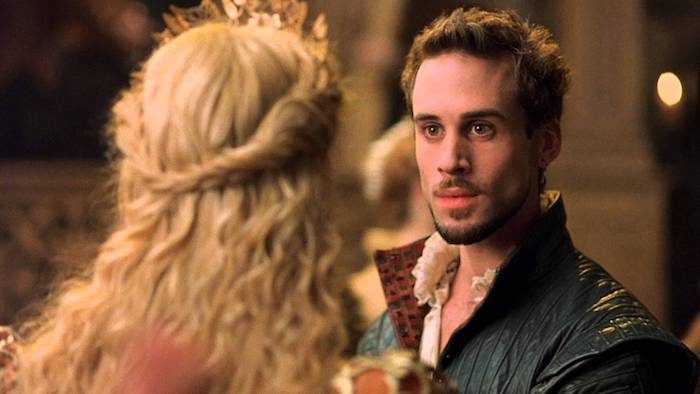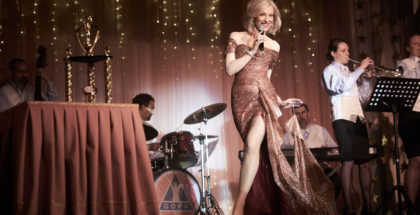The 90s On Netflix: Shakespeare In Love (1998)
Review Overview
Comedy of errors
7Much ado about nothing
6As you like it
8Mark Harrison | On 02, Mar 2018
Director: John Madden
Cast: Gwyneth Paltrow, Joseph Fiennes, Geoffrey Rush, Colin Firth, Ben Affleck, Judi Dench
Certificate: 15
Watch Shakespeare online in the UK: Netflix UK / Apple TV (iTunes) / Prime Video (Buy/Rent) / Google Play
Do you remember the 1990s? Mark does. In this column, he flashes back to the golden decade of our childhood. From family-friendly films to blockbusters we shouldn’t have been watching, get ready for a monthly dose of nostalgia, as we put down our VHS tapes and find out whether the 90s on Netflix are still Live & Kicking.
It’s Oscars weekend again, and before we all find out which film has won this year’s top award and get into arguing over what should have won instead, let’s look back at one of the more controversial Best Pictures of the 1990s. From its release in July 1998, Steven Spielberg’s Saving Private Ryan was the anointed Oscar favourite, right up until the upstart Miramax released a cosy bit of historical fan fiction called Shakespeare In Love.
The budding indie major picked up an old pitch by screenwriter Marc Norman, which might originally have starred Julia Roberts and Daniel Day Lewis when it was in development at Universal earlier in the decade. They enlisted director John Madden and writer Tom Stoppard to turn it into a crowd-pleasing period rom-com that won seven Oscars, at the end of a campaign that changed awards season, and not for the better.
In the film, William Shakespeare (Joseph Fiennes) is struggling to write his latest comedy, titled “Romeo & Ethel The Pirate’s Daughter”, despite having accepted an advance from two rival theatre companies for the manuscript. Enter our heroine, Viola de Lesseps (Gwyneth Paltrow), a fan of Will’s who secretly auditions to be his male lead in a bid to take her mind off her impending engagement to bankrupt toff Lord Wessex (Colin Firth), and winds up in a passionate, doomed affair with the writer to boot.
The glare of the Oscars spotlight isn’t flattering to many Best Picture winners in recent years, so it’s easy to forget how light-hearted and fun this one is. While Miramax’s later output would become craven awards bait, this is just a really good comedy. This kind of period piece was ripe for parody by this point, but mStoppard’s script is suitably Mel Brooks-proof with its idiosyncracies and sight gags. There’s also ample observance of the tropes of Shakespeare’s own plays, from mistaken identity to cross-dressing characters, even down to exaggerated reports of one character’s death that inspires the end of the play that evolves naturally from Romeo and Ethel. Through its quick and witty dialogue and self-awareness, it earns a little melodrama, even if the subplot involving Christopher Marlowe (Rupert Everett) bogs it down a little.
Fiennes is a fine romantic lead, but Paltrow’s Viola is the protagonist here, and the canny reversal of the period tradition of men playing women’s roles is central. Paltrow’s fellow Oscar winner, Judi Dench, only appears for eight minutes of screentime as Queen Elizabeth I, but their characters’ complementary roles as “a woman in a man’s job” becomes a solid theme that overpowers some of the ropier drama surrounding Will’s angst and the none-more-90s panto villain that Wessex presents (he’s so evil that he has a plantation in Virginia before America was even discovered).
Speaking of American anachronisms, while Paltrow is at her most charming here, the casting of her then-boyfriend Ben Affleck as actor Ned Alleyn, soldiering through with his very best British accent, is the only glaring Miramax-ism in the otherwise superb cast. As if to make up for the Affleck in the room, the roster of UK talent includes Martin Clunes, Simon Callow, Imelda Staunton, Tom Wilkinson, Antony Sher, Jim Carver and more. They even got Fast Show alumni Mark Williams as a stammering narrator and Simon Day as a boatman/cabbie (“I had that Christopher Marlowe in my boat once”) to lend a little something to the authenticity of this prestige trifle.
Did it deserve to win Best Picture? Quite possibly not, given how it was producer Harvey Weinstein’s first successful attempt at scooping awards by using political campaign tactics, including talking down the other nominees, schmoozing with voters and otherwise bullying his way to seven Oscars and various other awards throughout the season. But in the ongoing conversation about separating art from artist in the wake of the Me Too and Time’s Up movements, Weinstein is no artist, and Miramax’s best films should be entirely separable from the enormous tosser who produced them.
And separate from teary acceptance speeches and the superiority of Saving Private Ryan, Shakespeare In Love is a hugely likeable film with a cheeky sense of humour and a deep-rooted love of the Bard’s dramatic tropes. It’s a period drama that’s also a time capsule of the 1990s, from its post-modern sensibilities (“Have a care with my name,” barks Dench. “You will wear it out!”) to its largely British ensemble cast. It may have baggage, but on its own merits, there’s more than enough easy charm and romantic smarts to justify revisiting it.
Next time on The 90s On Netflix…
“The future… the polar ice caps have melted, covering the earth with water. Those who survived have adapted, to a new world.”
Shakespeare in Love is available on Netflix UK, as part of an £9.99 monthly subscription.























